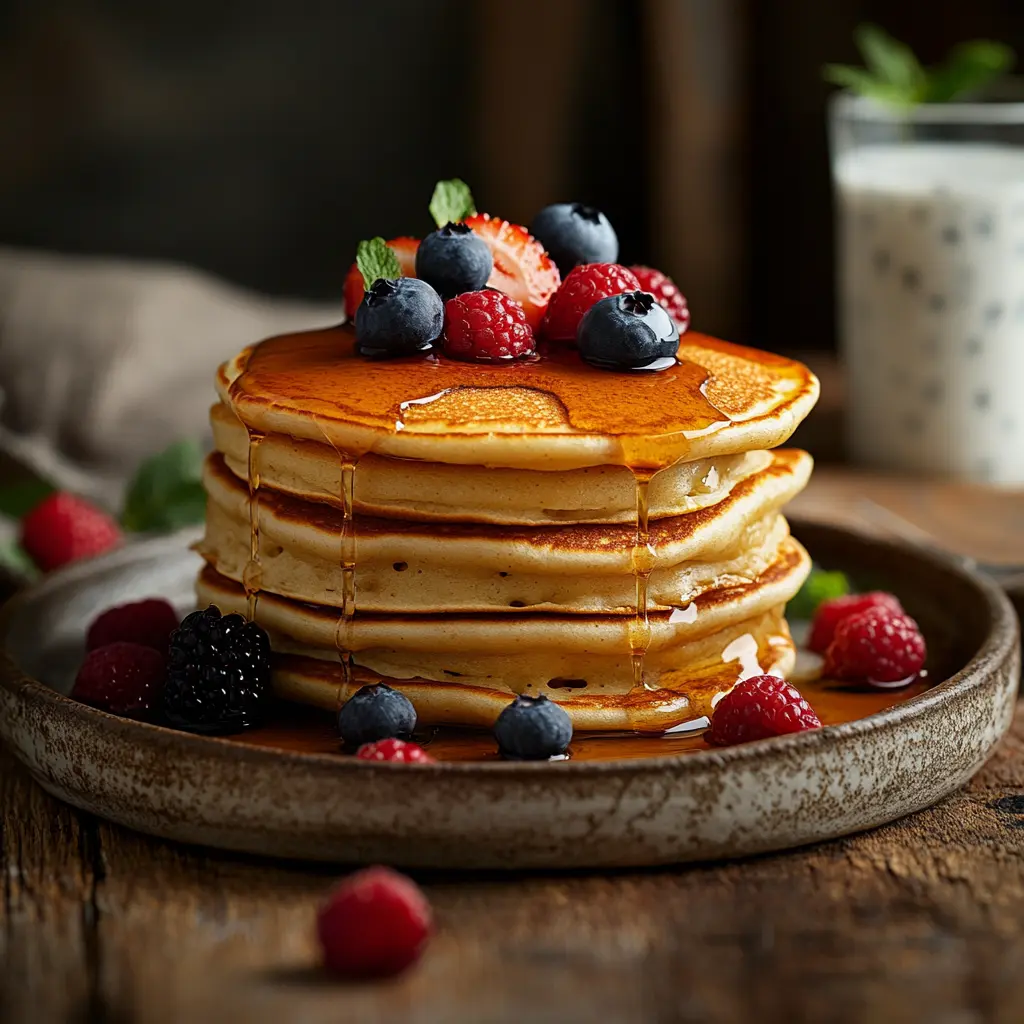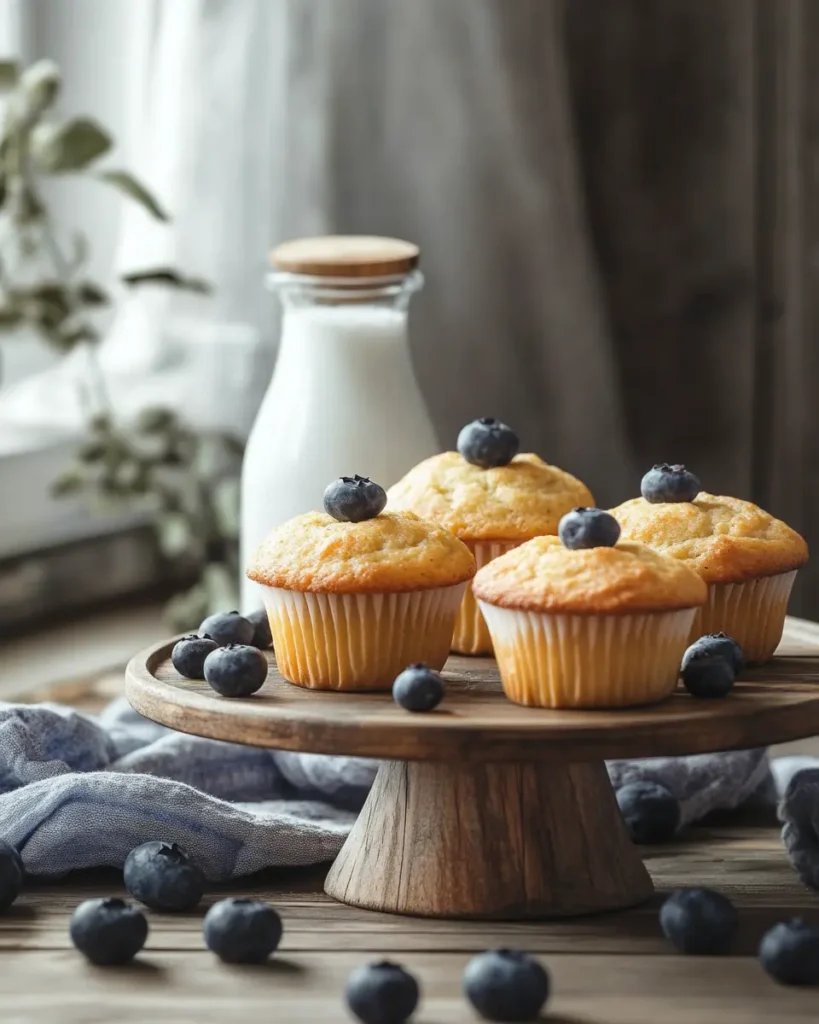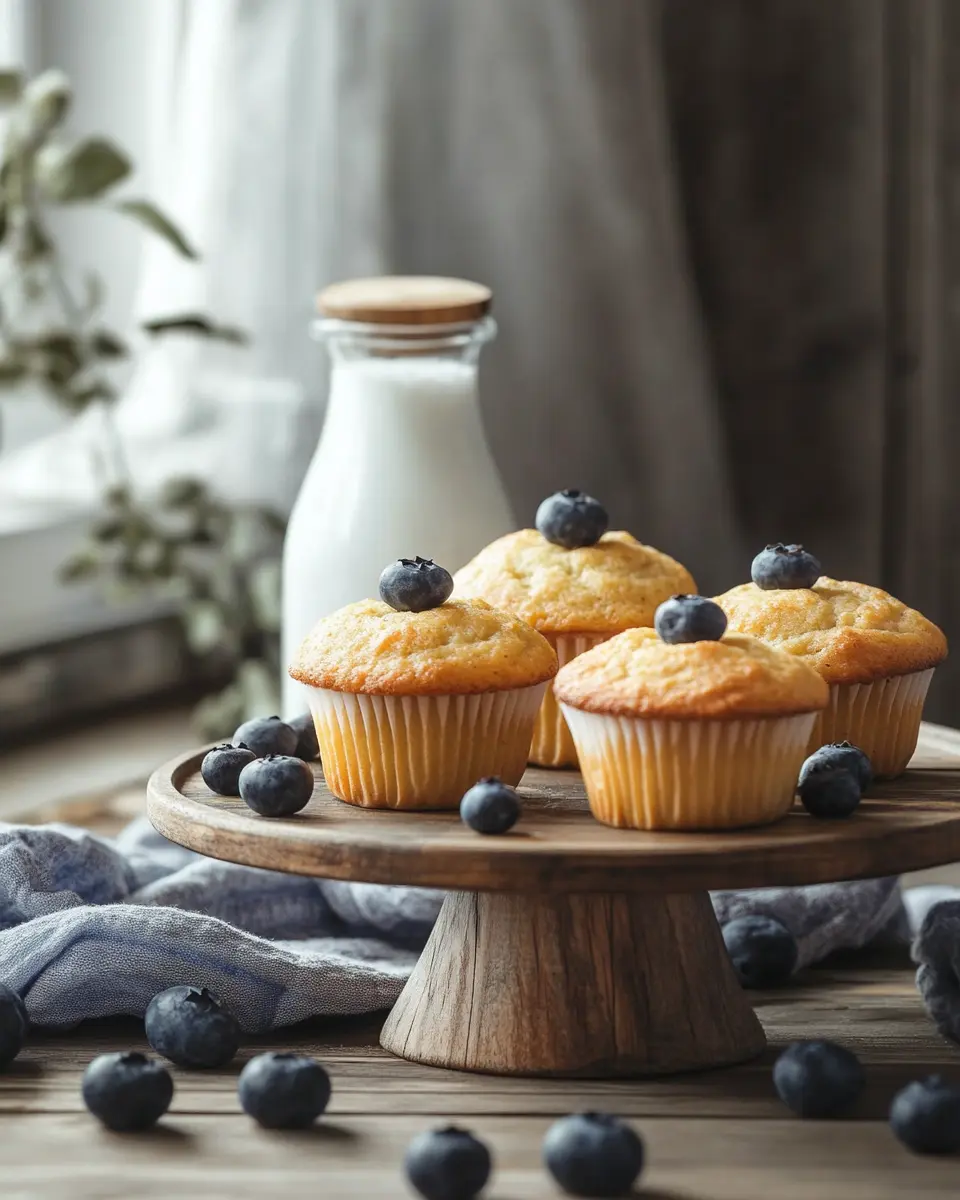Can I use kefir instead of milk in baking? Absolutely! Baking is part art and part science, and every ingredient plays a crucial role in the final product. But what happens when you’re out of milk? Can you grab that bottle of kefir sitting in your fridge instead? The answer is a resounding yes! Kefir, a tangy and nutritious fermented drink, isn’t just great for your gut—it’s also a fantastic milk substitute in baking. Let’s dive into how and why this works!
Can I Use Kefir Instead of Milk in Baking? Understanding the Basics
What Is Kefir?
Think of kefir as yogurt’s cooler, tangier cousin. It’s a fermented milk drink loaded with probiotics, vitamins, and minerals. Originating from the Caucasus Mountains, kefir is made by fermenting milk with kefir grains—tiny bundles of yeast and bacteria that give kefir its unique properties.
Here’s why kefir stands out:
- Tangy Flavor: Kefir adds a mild tanginess that enhances both sweet and savory baked goods.
- Rich Nutrition: Packed with calcium, protein, and probiotics, it’s a healthy alternative to regular milk.
- Versatility: Kefir comes in different varieties, including dairy-free options like coconut kefir, making it suitable for various dietary needs.
Why Is Kefir Popular in Baking?
Ever noticed how buttermilk makes pancakes fluffier or cakes moister? Kefir works similarly to buttermilk but offers an extra nutritional punch. Its acidity reacts with leavening agents like baking soda, giving your baked goods that light, airy texture. Plus, its tangy taste adds depth to recipes.
Can I Use Kefir Instead of Milk in Baking for Cakes and Muffins?
Key Differences Between Kefir and Milk
Let’s face it—milk and kefir aren’t identical. Milk is neutral and creamy, while kefir has a zesty tang and thicker consistency. These differences might make you wonder if swapping them is a good idea. Spoiler alert: it usually is!
Here’s a quick comparison:
| Property | Milk | Kefir |
|---|---|---|
| Flavor | Neutral | Tangy |
| Consistency | Thin | Slightly thicker |
| Nutritional Value | Protein, Calcium | Protein, Calcium, Probiotics |
Similarities That Make Kefir a Good Substitute
- Moisture Content: Both milk and kefir add moisture, a key factor for cakes, muffins, and breads.
- Liquid Ingredient: Kefir seamlessly integrates into batters and doughs, just like milk.
Common Challenges When Substituting Kefir for Milk
While kefir is a champ in the kitchen, it’s not without quirks. Here are some common issues you might face:
- Tanginess Overpowering the Dish: Some recipes, like custards, might not pair well with kefir’s zesty flavor.
- Thicker Consistency: Kefir can make batters denser, requiring slight adjustments.
- Acidity Conflicts: If the recipe already has acidic ingredients, such as lemon juice or vinegar, kefir’s acidity might be overkill.
💡 Pro Tip: If kefir’s tanginess feels too strong, mix it with water or milk to dilute the flavor.
How to Use Kefir in Baking Recipes
Adjusting Recipes When Using Kefir
Here’s the golden rule: kefir can replace milk in equal quantities, but slight tweaks can make a big difference. Because kefir is thicker, you may need to adjust the amount of flour or other dry ingredients to maintain the right texture.
Example Adjustment:
- If a recipe calls for 1 cup of milk, use 1 cup of kefir but consider reducing the amount of flour by 1-2 tablespoons.
Tips for Measuring Kefir Correctly
Pouring kefir straight into a measuring cup can be tricky due to its thicker texture. To get an accurate measurement:
- Use a liquid measuring cup.
- Allow the kefir to settle before measuring.
- Level the top with a spoon for precision.
Enhancing Flavor with Kefir
Kefir isn’t just a replacement—it’s an upgrade. Its tangy profile pairs beautifully with:
- Sweet recipes like lemon cake or blueberry muffins.
- Savory dishes like cornbread or biscuits.
“Using kefir in baking is like adding a secret ingredient that makes people ask, ‘What’s your trick?’”
Does Kefir Curdle When Heated?
Understanding Kefir’s Behavior Under Heat
The million-dollar question: does kefir curdle when heated? Yes, but only under certain conditions. Kefir contains live cultures, which can curdle if exposed to high heat for prolonged periods. However, in baking, this isn’t usually a problem because the curdling happens on a microscopic level and gets incorporated into the batter.
How to Prevent Curdling in Recipes
To keep your kefir-based recipes smooth and creamy:
- Avoid Overheating: Keep the temperature under control, especially for custards or sauces.
- Combine Gradually: Mix kefir with other liquids at room temperature before adding it to hot ingredients.
- Stir Constantly: If you’re using kefir in a stovetop recipe, stir continuously to prevent lumps.
💡 Fun Fact: Even if kefir curdles slightly, it won’t ruin the texture of your baked goods. Instead, it adds richness!
Popular Recipes Using Kefir Instead of Milk
Kefir’s versatility shines in a variety of recipes. Whether you’re whipping up a weekend breakfast or an elaborate dessert, it’s got your back. Here are some crowd-pleasers:
Kefir Pancakes and Waffles

Can I use kefir instead of milk in baking pancakes and waffles? Yes! Fluffy, light, and slightly tangy, kefir pancakes are a breakfast favorite. The acidity in kefir reacts with baking soda, giving you a beautifully puffed-up stack.
| Ingredients | Quantity |
|---|---|
| Kefir | 1 cup |
| All-purpose flour | 1 1/2 cups |
| Egg | 1 |
| Baking soda | 1 tsp |
| Sugar | 2 tbsp |
Kefir Cakes and Muffins

Looking for a moist, flavorful dessert? Replace milk with kefir in your favorite cake or muffin recipe. Try adding fruits like blueberries or citrus zest to complement kefir’s tanginess.
Kefir Breads and Savory Bakes
For hearty breads or savory scones, kefir works like a charm. Its acidity strengthens gluten, resulting in a tender crumb.
Advantages of Baking with Kefir
Substituting kefir for milk isn’t just a workaround when you’re out of milk—it’s an upgrade! Let’s explore some of the incredible benefits kefir brings to the table.
Improved Texture and Moisture in Baked Goods
Ever baked a cake that turned out dry and crumbly? Nobody likes that. Kefir, with its higher fat and protein content, locks in moisture like a charm. The result? Cakes, muffins, and breads with a tender crumb and melt-in-your-mouth texture.
Here’s why:
- Acidic Reaction: Kefir’s acidity activates baking soda, leading to a fluffier rise.
- Moisture Retention: Kefir hydrates the batter more effectively than milk.
💡 Pro Tip: For extra moist banana bread or chocolate cake, replace milk with kefir and reduce the baking time by a few minutes.
Probiotic Benefits for Gut Health
Who says desserts can’t be healthy? Kefir is teeming with probiotics—those friendly bacteria that keep your gut in tip-top shape. Baking with kefir doesn’t completely destroy these probiotics. While high heat can kill some, the benefits remain in dishes that don’t require prolonged baking.
Fun Fact:
Probiotics in kefir can:
- Aid digestion.
- Strengthen the immune system.
- Promote better nutrient absorption.
So, that slice of kefir-infused coffee cake? It’s practically self-care. 😉
Unique Tangy Flavor Profile
Kefir’s tangy kick can elevate the flavor of your baked goods, adding a gourmet twist. It pairs particularly well with:
- Citrus-based desserts.
- Spiced treats like gingerbread.
- Cheesy or savory bakes like biscuits.
Common Problems When Using Kefir in Baking
As much as we love kefir, it can be a bit of a diva in the kitchen. Here are some common hurdles and how to tackle them.
Altered Consistency of the Batter
Because kefir is thicker than milk, it can make your batter denser. This might throw off the baking process if you’re not careful.
Solution:
- Add a tablespoon of water or milk to thin the kefir if the batter feels too stiff.
- Whisk the batter gently to avoid overmixing, which can make baked goods tough.
Changes in Baking Time and Temperature
Kefir’s acidity speeds up browning, which means your cookies or cakes might look done before they actually are.
Solution:
- Lower the oven temperature by 10°F (about 5°C) and keep a close eye during baking.
- Use a toothpick to check doneness instead of relying on appearance alone.
Overpowering Tanginess in Flavor
While kefir’s tanginess is often a plus, it can sometimes overwhelm delicate flavors like vanilla or almond.
Solution:
- Balance the tanginess with sweeteners like honey or brown sugar.
- Add complementary spices like cinnamon or nutmeg to offset the sharpness.
Solutions for Common Kefir Baking Issues
Now that we’ve covered the problems, let’s focus on solutions that make baking with kefir a breeze.
Balancing Tanginess with Sweeteners
Kefir’s bold flavor can steal the spotlight, but a touch of sweetness can bring harmony to your recipe. Try these sweeteners:
- Honey: Adds natural sweetness and a floral undertone.
- Maple Syrup: Complements the tanginess with its rich, earthy flavor.
- Brown Sugar: Enhances moisture and depth in baked goods.
Mixing Techniques to Avoid Overcurdling
Curdling might sound scary, but it’s more about appearance than taste. To keep kefir smooth:
- Whisk it gently with other wet ingredients before combining with dry ones.
- Let the kefir reach room temperature before using it.
“The secret to working with kefir is to treat it with care—like the star ingredient it is.”
Adjusting Leavening Agents for Kefir’s Acidity
Kefir’s natural acidity can throw off the balance of baking soda or powder. Here’s how to adjust:
- For Baking Soda: Use 1/4 teaspoon of baking soda per cup of kefir.
- For Baking Powder: Reduce slightly or use a combination of baking powder and soda for the best rise.
💡 Bonus Tip: Adding a pinch of salt can also enhance the flavor and balance the acidity.
Frequently Asked Questions
Still have questions? Let’s clear up some of the most common concerns about baking with kefir.
Can You Use Kefir Instead of Milk in Baking?
Absolutely! Kefir can replace milk in most recipes without a hitch. Its tangy flavor and creamy texture often improve the overall result. Just remember to adjust for its thicker consistency if needed.
How Do You Use Kefir in Baking?
It’s simple—just swap it in at a 1:1 ratio for milk. For best results:
- Mix kefir with other wet ingredients before incorporating it into the batter.
- Adjust flour or water content as necessary to get the right texture.
Can Kefir Be Substituted for Milk in All Recipes?
While kefir works in most recipes, it’s not ideal for every single one. For instance:
- In recipes where the milk’s neutral flavor is essential, kefir might be too tangy.
- Dishes like custards or puddings may require more precise adjustments.
Does Kefir Curdle When Heated?
Yes, but only in certain situations. High heat or prolonged cooking can cause curdling, but this usually doesn’t affect baked goods. To minimize curdling:
- Use moderate heat.
- Combine kefir with other ingredients before heating.
Popular Recipes Using Kefir Instead of Milk
Ready to roll up your sleeves and bake with kefir? In this section, we’ll explore some delicious recipes where kefir truly shines. Whether you’re craving something sweet or savory, kefir has got you covered.
Kefir Pancakes and Waffles
There’s nothing like waking up to fluffy pancakes or waffles. Using kefir instead of milk gives these breakfast classics a light, airy texture and a hint of tang that pairs beautifully with maple syrup.
Ingredients:
| Ingredient | Quantity |
|---|---|
| Kefir | 1 cup |
| All-purpose flour | 1 1/2 cups |
| Baking soda | 1 tsp |
| Sugar | 2 tbsp |
| Egg | 1 |
| Melted butter | 2 tbsp |
| Vanilla extract | 1 tsp |
Directions:
- In a large bowl, whisk together the kefir, egg, melted butter, and vanilla extract.
- In a separate bowl, mix the flour, sugar, and baking soda.
- Gradually add the dry ingredients to the wet ingredients, stirring until just combined.
- Heat a non-stick skillet or waffle iron and grease lightly.
- Cook pancakes or waffles until golden brown on both sides. Serve warm with your favorite toppings.
“Kefir pancakes are like a warm hug on a plate—soft, comforting, and just a little zesty!” 🥞
Kefir Cakes and Muffins
Moist, tender, and bursting with flavor, cakes and muffins made with kefir are a must-try. The tangy profile of kefir pairs wonderfully with fruits like blueberries or citrus zest.
Blueberry Kefir Muffins
| Ingredient | Quantity |
|---|---|
| Kefir | 1 cup |
| All-purpose flour | 2 cups |
| Sugar | 3/4 cup |
| Baking powder | 1 tsp |
| Baking soda | 1/2 tsp |
| Salt | 1/4 tsp |
| Egg | 1 |
| Vegetable oil | 1/4 cup |
| Blueberries | 1 cup |
Directions:
- Preheat the oven to 375°F (190°C) and line a muffin tin with paper liners.
- In a bowl, whisk together the kefir, egg, and oil.
- In another bowl, combine the flour, sugar, baking powder, baking soda, and salt.
- Gently fold the dry ingredients into the wet ingredients until just combined.
- Add the blueberries and stir lightly.
- Divide the batter among the muffin cups and bake for 20-25 minutes.
💡 Pro Tip: Sprinkle a little sugar on top of each muffin before baking for a crisp, golden crust.
Kefir Breads and Savory Bakes
For savory dishes like cornbread or scones, kefir works wonders by enhancing both texture and flavor. Its acidity helps tenderize the dough, resulting in a light, flaky crumb.
Kefir Cornbread
| Ingredient | Quantity |
|---|---|
| Kefir | 1 cup |
| Cornmeal | 1 cup |
| All-purpose flour | 1 cup |
| Sugar | 1/4 cup |
| Baking powder | 1 tsp |
| Baking soda | 1/2 tsp |
| Salt | 1/4 tsp |
| Egg | 1 |
| Butter (melted) | 2 tbsp |
Directions:
- Preheat the oven to 400°F (200°C) and grease a baking dish.
- Mix kefir, egg, and melted butter in a bowl.
- Combine the cornmeal, flour, sugar, baking powder, baking soda, and salt in another bowl.
- Add the dry ingredients to the wet ingredients and stir until just combined.
- Pour the batter into the prepared dish and bake for 20-25 minutes, or until golden brown.
Conclusion
Can I use kefir instead of milk in baking? Absolutely! This fermented drink isn’t just a substitute—it’s a game-changer. Whether you’re baking cakes, muffins, or bread, kefir enhances moisture, texture, and flavor. Its tangy flavor, rich nutrition, and unique properties make it a standout ingredient for both sweet and savory recipes.
Here’s a quick recap of why kefir rocks in the kitchen:
- It’s Versatile: Perfect for pancakes, cakes, breads, and more.
- It’s Nutritious: Packed with probiotics, calcium, and protein.
- It’s Flavorful: Adds a tangy twist to elevate your recipes.
“Next time you’re in the mood to bake, don’t just reach for milk—grab some kefir and watch your recipes come to life!” 🎉
FAQ Recap
- Can you use kefir instead of milk in baking? Yes! Kefir works wonderfully in most recipes, enhancing texture and flavor.
- How do you use kefir in baking? Swap it for milk at a 1:1 ratio and make small adjustments as needed.
- Does kefir curdle when heated? It can, but this usually doesn’t affect the final product in baking.
Experimenting with kefir in baking opens up a world of possibilities. From fluffy pancakes to tender muffins and savory breads, this ingredient is a game-changer. Give it a try—you might just find your new favorite secret weapon in the kitchen!

Kefir Baking Basics
Ingredients
Method
- In a large bowl, whisk together the wet ingredients including kefir, eggs, and any fats like butter.
- In another bowl, mix all the dry ingredients including flour, sugar, and leavening agents.
- Gradually combine wet and dry ingredients, stirring until just combined.
- Cook pancakes or pour batter into muffin tins or pans based on the recipe.
- Bake or cook until golden brown and a toothpick comes out clean.

